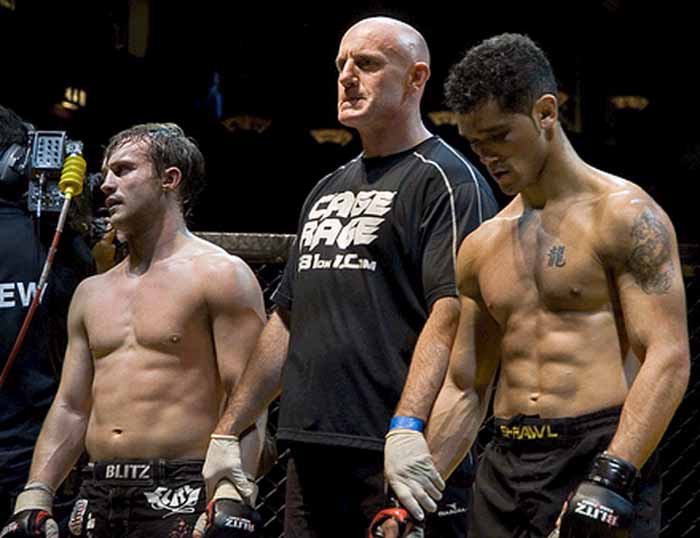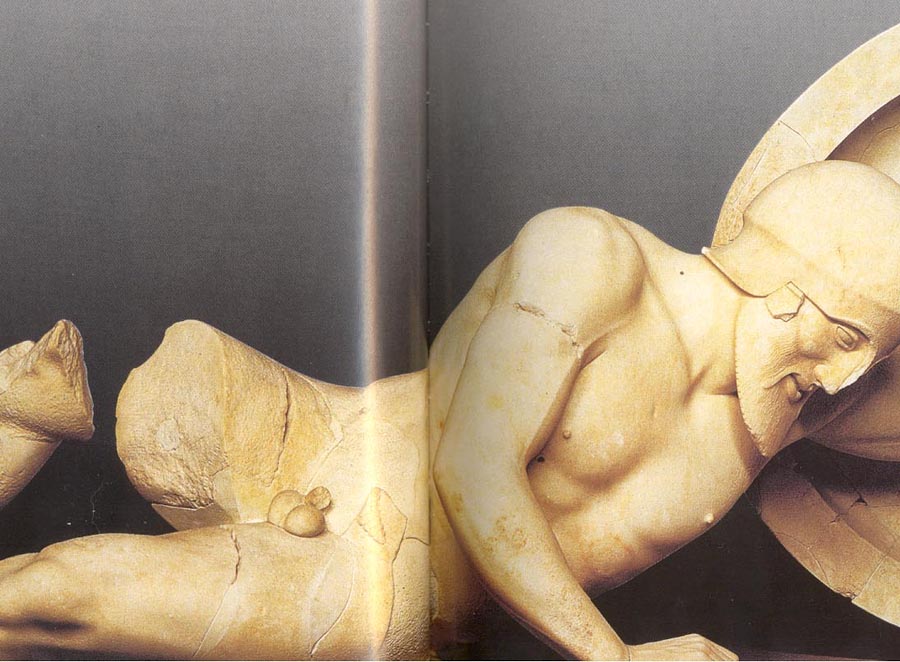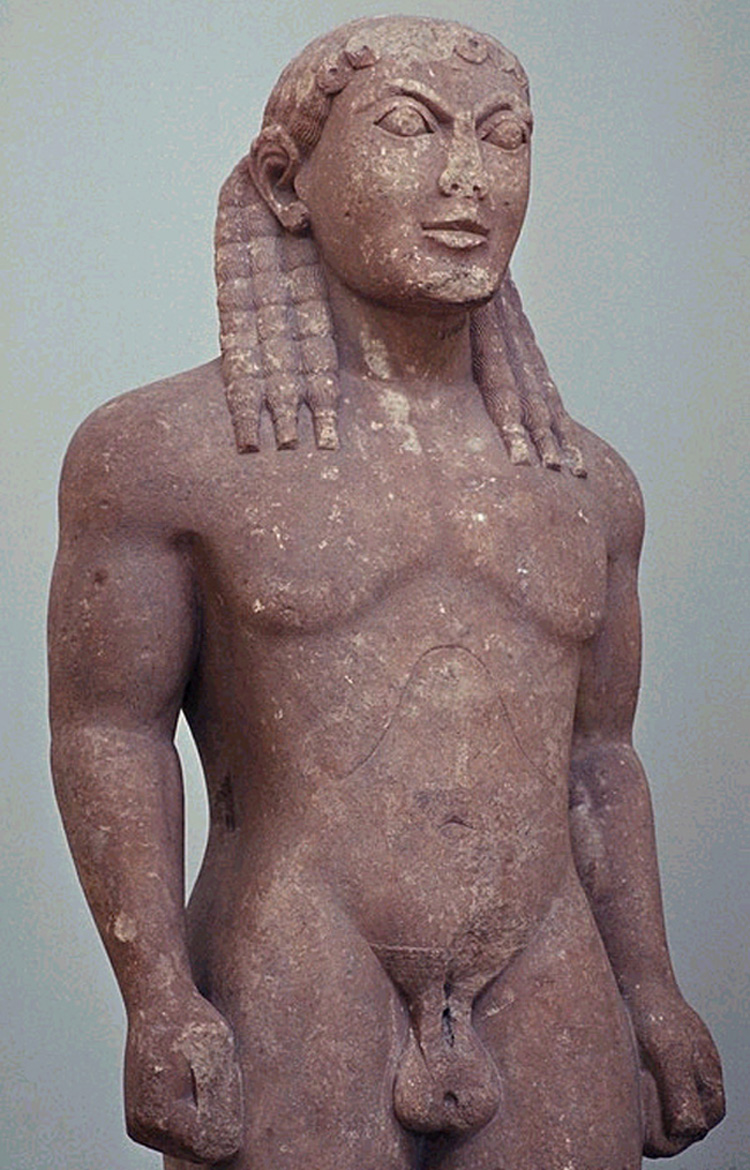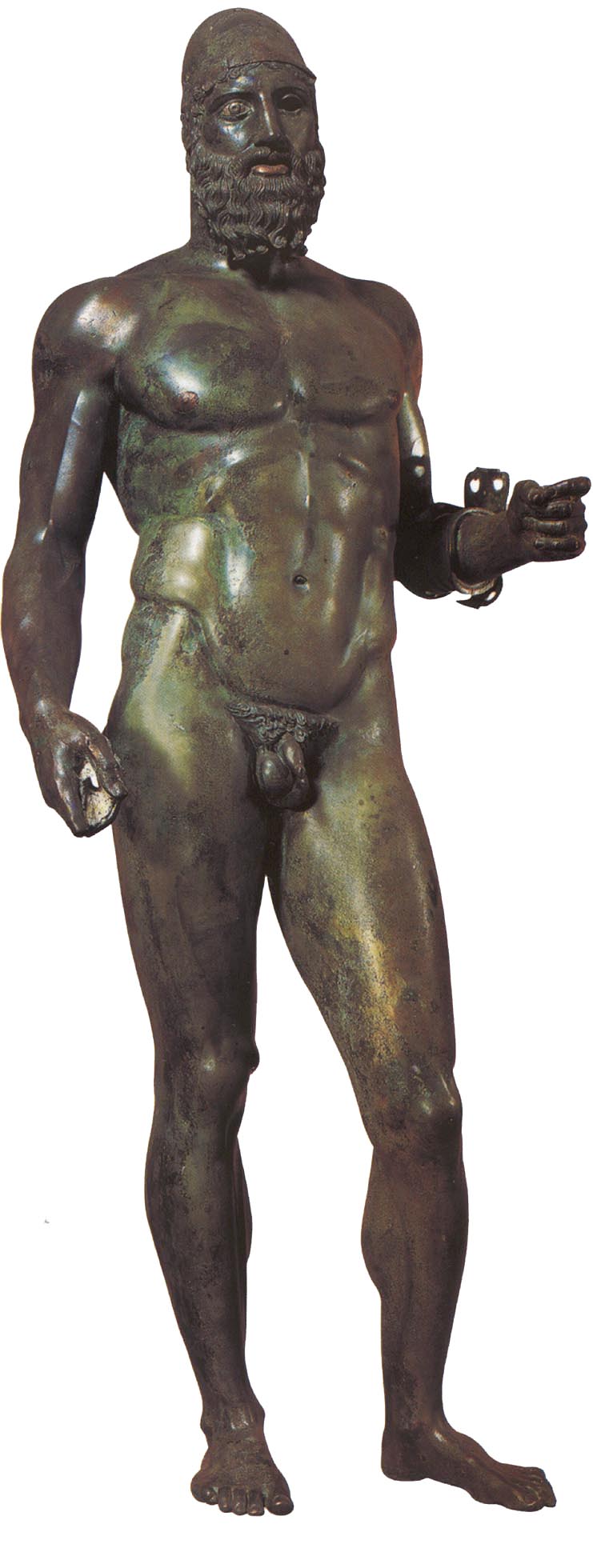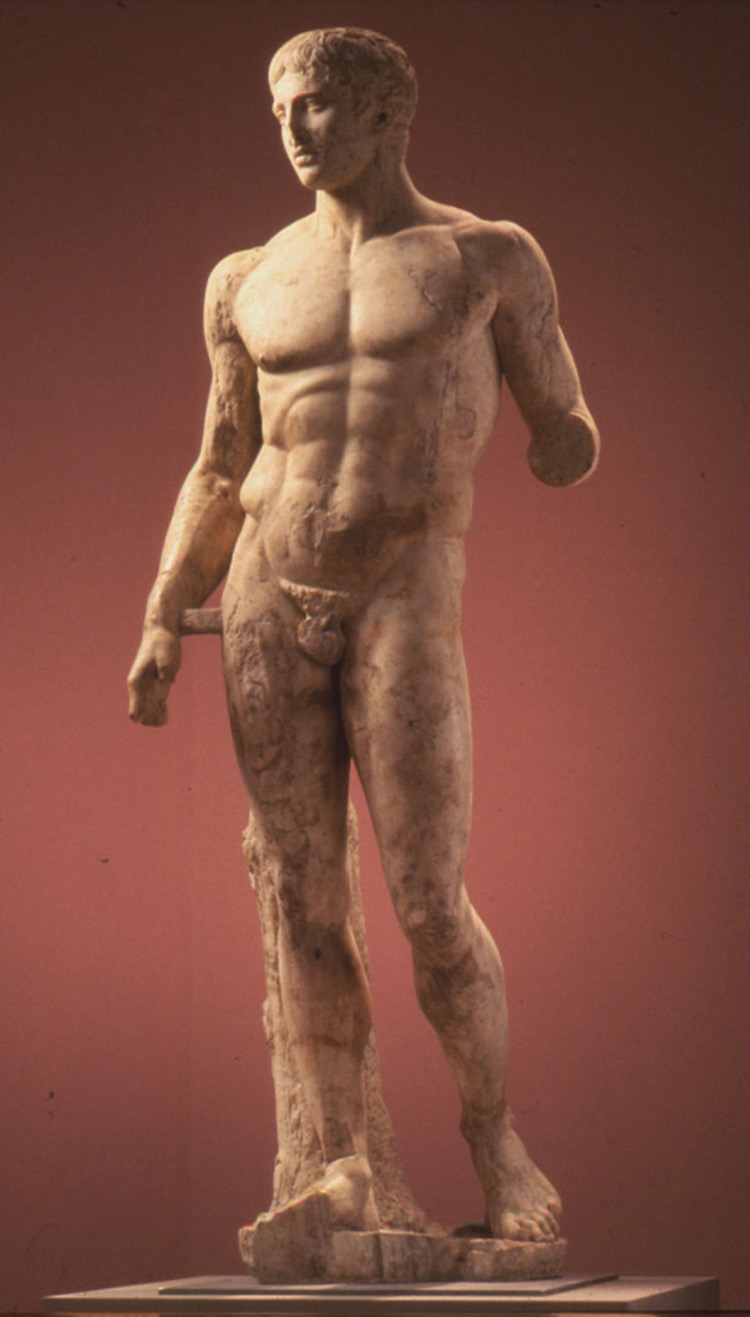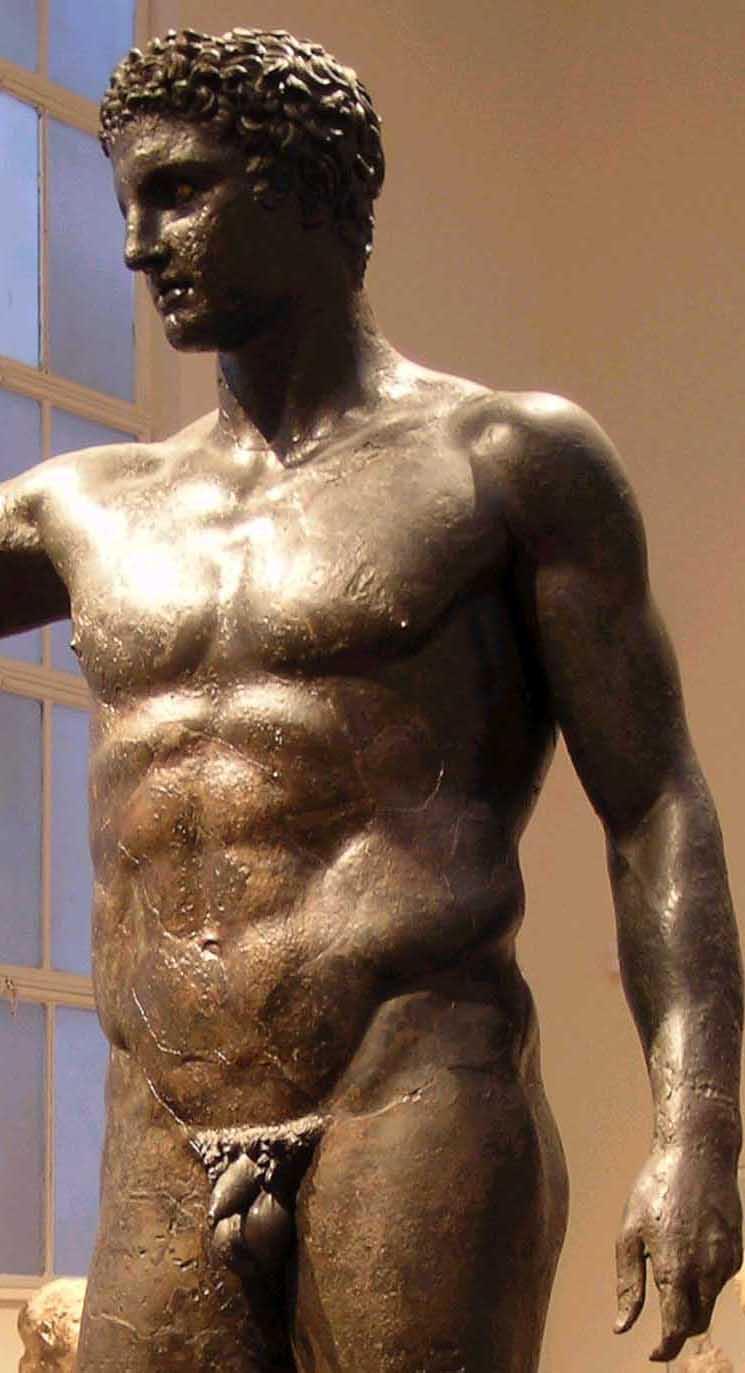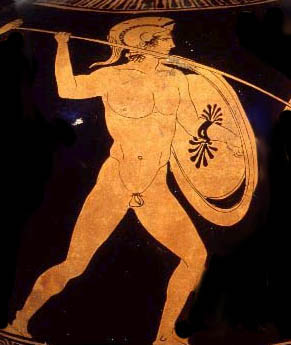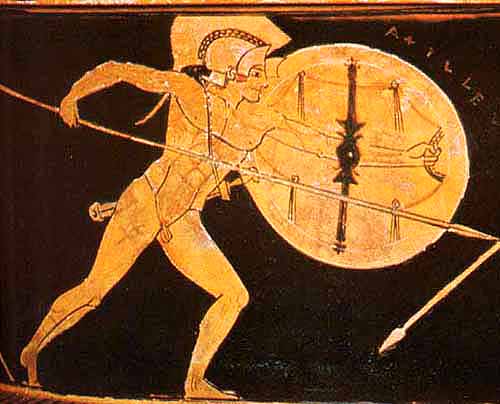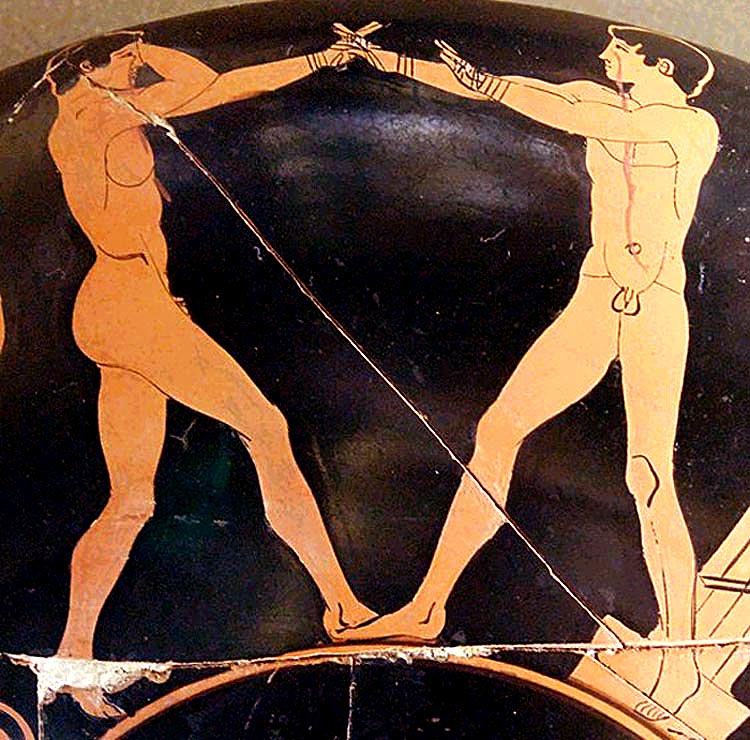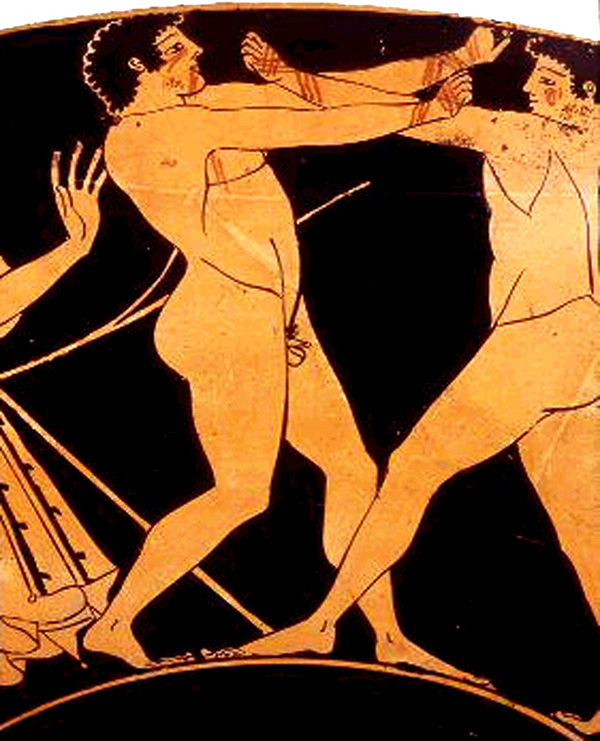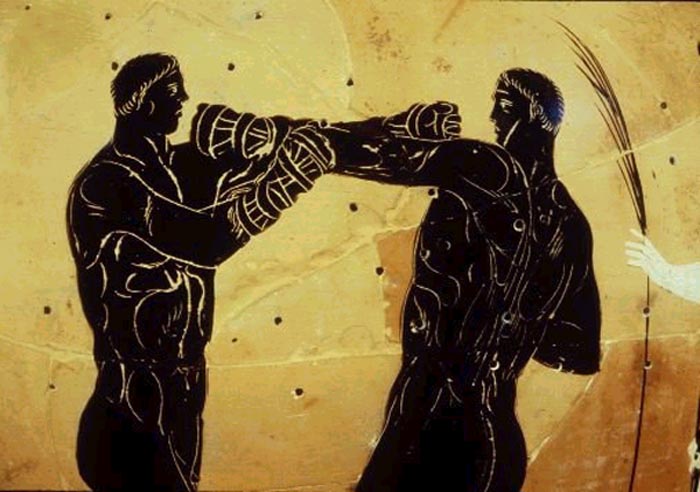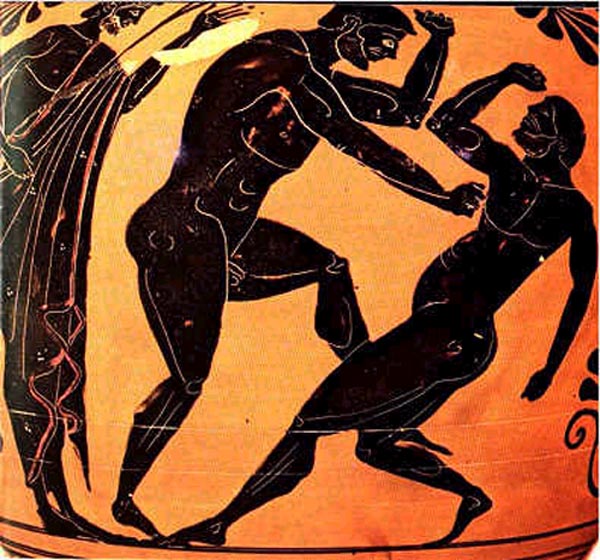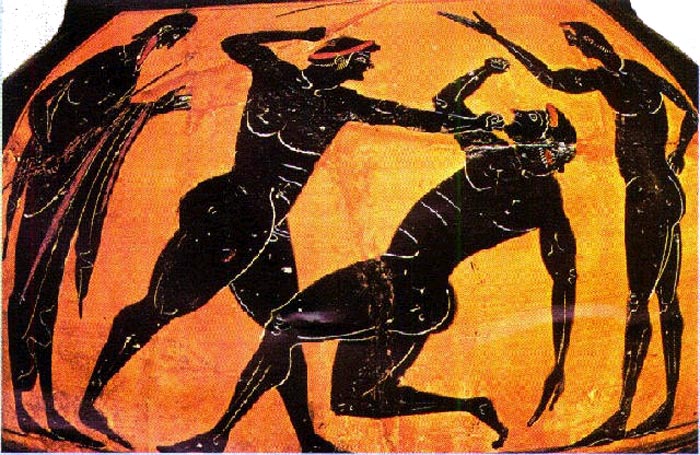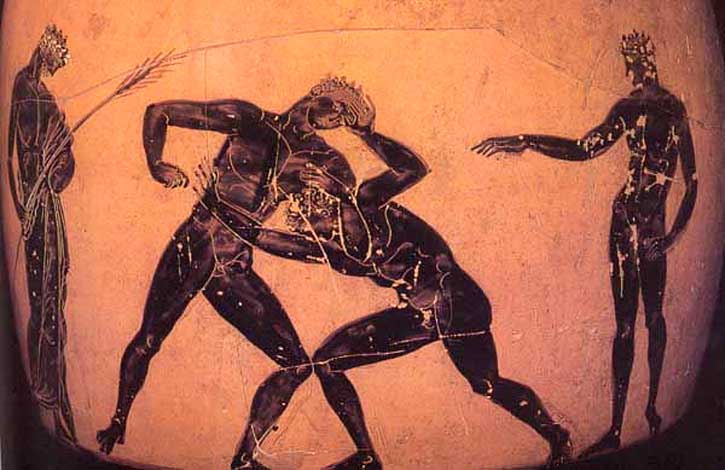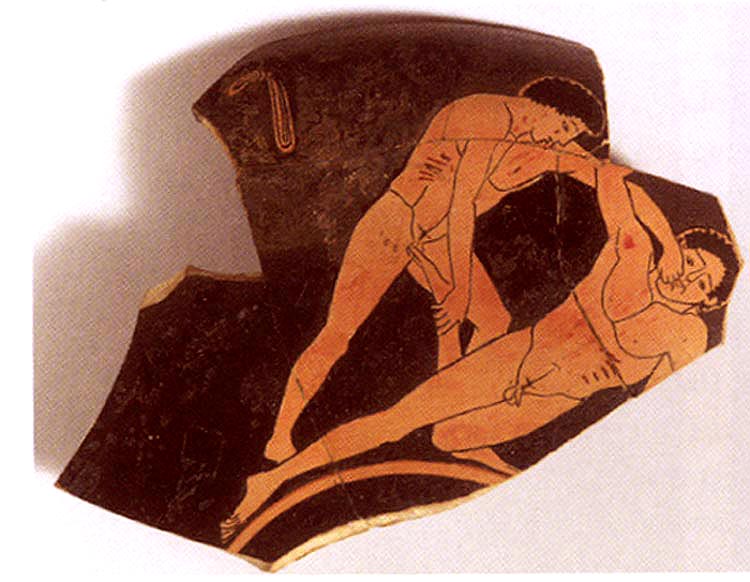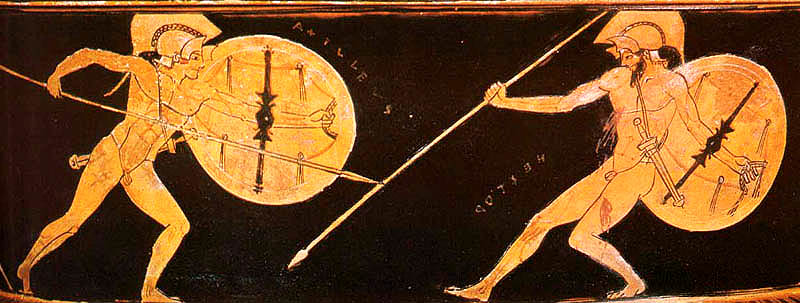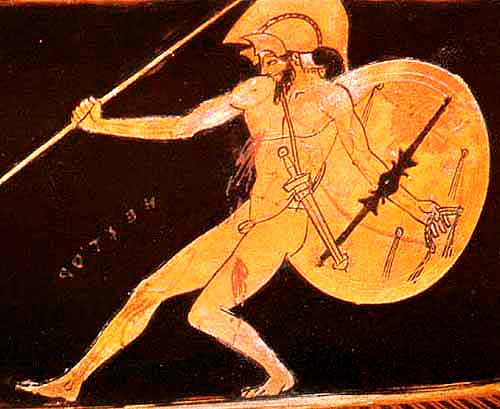




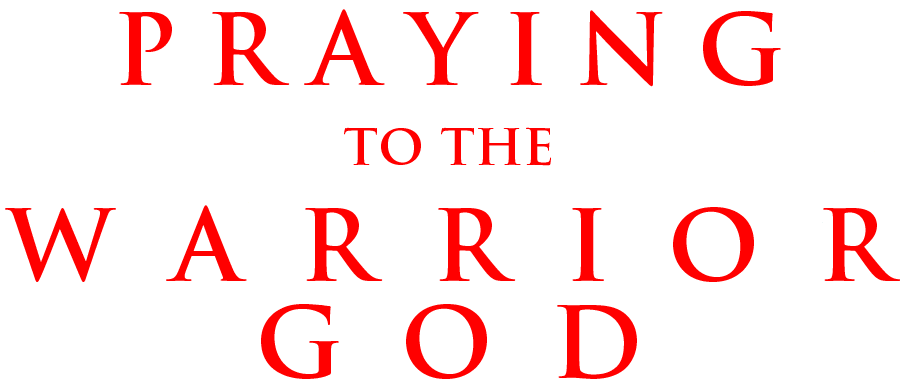
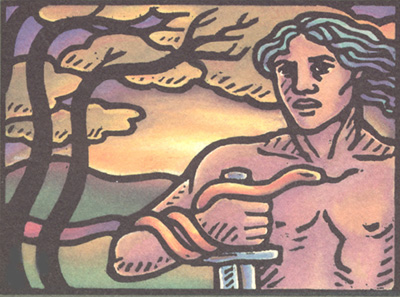


Praying to the Warrior God
3-1-11
Hi Warrior Bill,
You will remember in Worshipping the Warrior God I said how I prayed naked and in your reply you said how to do so was good enough for the Greeks.
Anyway I just read from a book about the Greeks, something similar. Now, I started praying naked quite a while before I ever got this book, let alone before I started reading it; then I was amazed by how close what they said was to what I had said about praying naked. The book is, Paideia, The ideals of Greek culture (Volume I) by Werner Jaeger. What he says is, "In a prayer, man stands stripped of all but his own individuality, and faces pure Being as he did at the beginning of life."
Now this was first written in 1939, but was concerning men who were around about 3,000 years before. It seems the idea of worshipping the Warrior God (or at least praying) naked has been going around for a while, it has quite a vintage, so do you think He has been passing this to Men that they should be completely open with Him, after all He gave them their Manhood so any reason why they can't stand there with it on show to Him, when they make contact with Him. I thought the idea of doing this, praying naked, had come from within me, now I am sure it has been about in the Kosmos and I was just one in a long line to get this from Him, to pray in what He thinks is the correct way. I know that I feel right doing it like that as though I should have done it like that all along.
With Warrior Love
Brian
PS
Re the soon-to-be wedding of HRH William to Kate.
On TV news here in the UK they said how HRH William had chosen his brother HRH Harry to be his "best man" and as best man Harry would organize the "stag party."
Well, I think I won't hold my breath while I wait for the invitation to it.
I don't think I know HRH THAT well.
Mind, if I can't know a royal Prince, then better still I know several Princes among Men who are also Warriors, you Bill for one, then NW, and Patrick, and Robert, and Omar, and others.
Rich am I, not in money but in Comradeship and Warriorhood; let me have them over silver or gold, they are worth more in my life, they have made it so much better already, and can only go on to do so more.
Oh, did I say, here's is this month's tithe.
Keep up the good work.
With Warrior Love,
Brian
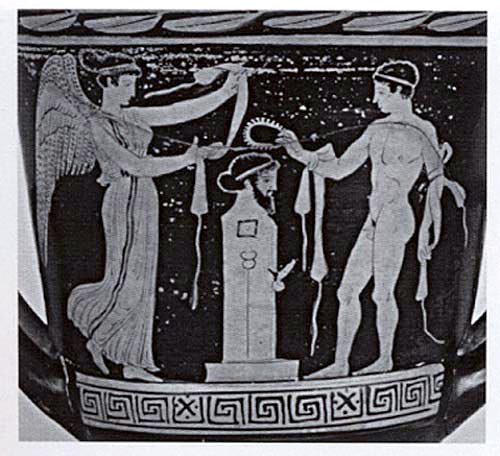
A nude victorious athlete and Nike join in crowning a phallic Herm
Also by Warrior Brian Hulme:
The credit crunch will NOT crunch my Manhood my Masculinity or my Warriorhood
CAN MY MAN TO MAN RELATIONSHIP DRAW ME CLOSER TO GOD?
14th February -- or -- EROS DAY?
The Warrior Altruism of the Warrior God
The Life and Times of Willy the Dick
Reply from:
Re: Praying to the Warrior God
3-8-2011
Thank you Warrior Brian Hulme.
Excellent!
So, first off guys, Werner Jaeger's truly spectacular book, Paideia, The Ideals of Greek Culture, is on the Heroes Reading List.
And on that Reading List you'll find a link to the book's page on amazon.com, where you can read customer reviews of the book.
And you'll also see that you can buy it used quite inexpensively.
Plus! -- I've recently updated the Reading List -- so be sure to ck it out.
So -- Warrior Man Brian has been praying, naked, to the Warrior God.
Which you should all be doing.
And he's found, by reading Werner Jaeger -- something else you should all be doing -- that this is a very Greek way of approaching the Warrior God.
Brian then adds, in a PS, that while he might not be going to a royal wedding,
Rich am I, not in money but in Comradeship and Warriorhood; let me have them over silver or gold, they are worth more in my life, they have made it so much better already, and can only go on to do so more.
And this too is an ancient Greek idea.
Some of you may remember these ancient Greek verses, which we discussed in AGOGE VI: The Strife of Valour: Austerity and Equality at Sparta:
Ares is Lord.
Greece has no fear of Gold.
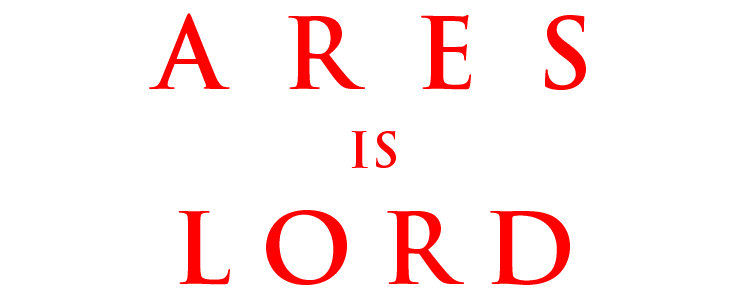
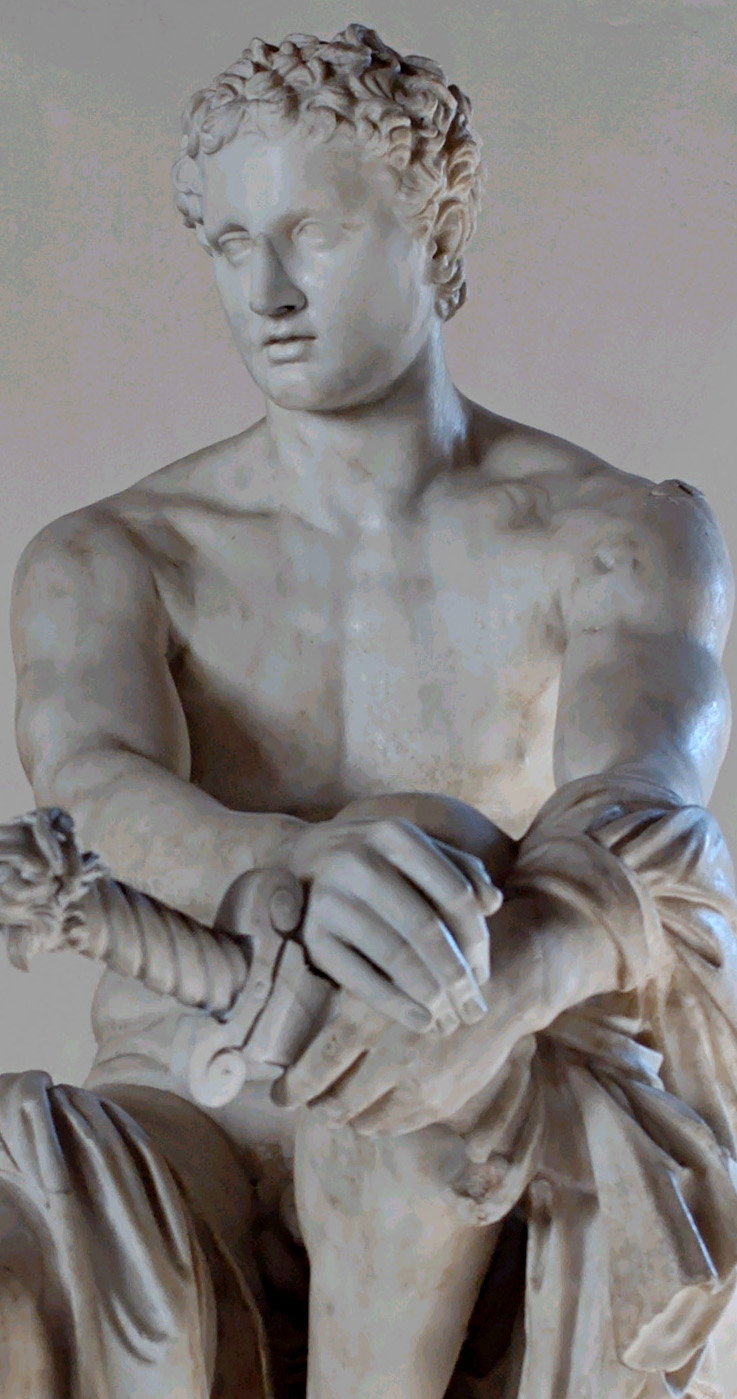

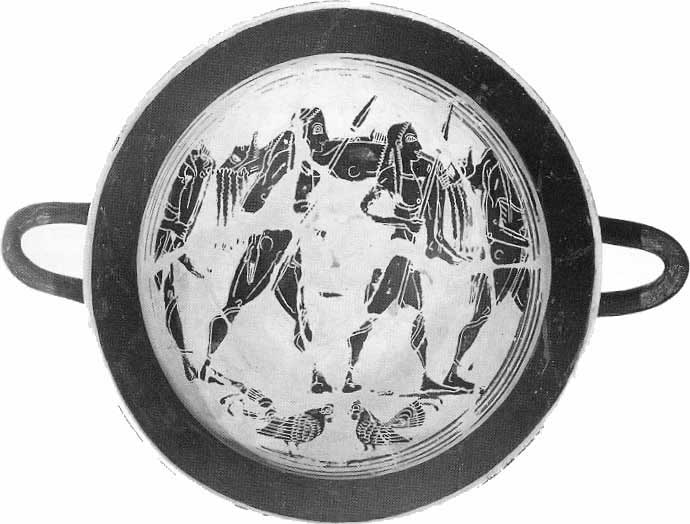



Comradeship and Warriorhood, then, banish the fear of money.
Plato says there are three types of humanity:
- The Philosophers -- the Lovers of Wisdom;
- The Warriors -- the Lovers of Honor; and
- The money-makers -- the lovers of gain.
There's room for all three, in a manner of speaking, in his Republic.
But he's clear that the third group must always be subordinate to the Warriors, whom he calls the Guardians; and subordinate to the Philosophers -- who Love Wisdom, and above all, Justice.
Social Justice.
In our contemporary world, this order has been reversed.
The money-makers, with their values of greed and gain, are in control.
The Warriors must obey them.
While the Philosophers are dis-honored and forgotten.
It's important that the Philosophers be forgotten, for it's the Philosophers and Prophets who've consistently condemned greed and the striving for gain.
While teaching that Men should seek social justice.
So the Philosophers and Prophets have to be marginalized and silenced.
And the Warriors -- controlled.
Not by the Philosophers -- as they would be in Plato's Republic -- but by the money-makers.
Again, this is the reverse of the way ethicists, including Greek philosophers and Hebrew prophets, have always thought of the way society should be ordered.
Men are to seek Wisdom and Honor first, not money.
I had cause to ponder that when I saw a recent article in The New York Times about a psychiatrist who has stopped doing "talk therapy" -- which he said was his true love; and is now instead simply prescribing medications.
The reason is money.
He can make "only" $90 per hour doing talk therapy; prescribing meds, he makes $160.
Now:
Figuring an eight-hour day -- the psychiatrist says he works eleven-hour days, but we'll be moderate, and say eight -- and a five-day week, $90 per hour is $3600 per week.
Figuring four weeks vacation per year, and no other source of income, we have $3600 x 48 = $172,800.
The psychiatrist is 65 years old; he's long since paid for the cost of med school, he should own at least his own house and probably a vacation home, and his kids are grown.
Why then does he feel that he can't live off of $172,000 per year?
Because, he says, that would mean an income reduction, and,
"Nobody wants to go backwards, moneywise, in their career," he said. "Would you?"
I must say I found that a strange statement.
In point of fact, it's common -- or at least it used to be -- for people in the psychiatrist's situation to trade income for job satisfaction.
Especially, when the amount of income, though lower, is still immense.
Freud himself -- and the psychiatrist, who's about my age, that is, in his 60s, was educated, as was I, in Freudian psychoanalysis -- Freud himself famously said that the components of the Good Life are Good Work and Good Love.
While the great mythographer Joseph Campbell said that in terms of career, you should "Follow your bliss" -- that is, do what you love doing.
Yet the psychiatrist, Dr Levin, has rejected both those pieces of wisdom, and instead insists on making as much *money* as he can.
Even though he doesn't like doing it!
Dr. Levin has found the transition difficult. He now resists helping patients to manage their lives better. "I had to train myself not to get too interested in their problems," he said, "and not to get sidetracked trying to be a semi-therapist.""I miss the mystery and intrigue of psychotherapy," he said. "Now I feel like a good Volkswagen mechanic."
His choice becomes even stranger -- and his use of the term "mechanic" prescient -- when we learn that prescribing meds the way he does is rather cut-and-dried; just the sort of thing which some software and a computer terminal, monitored perhaps by a physician in Bangalore or Mumbai or Ho Chi Minh City -- will soon be able to do far more cheaply than Dr Levin.
As Paul Krugman pointed out in a column in that very same paper on that very same day, in which he noted, "computer-aided medical diagnoses are already here."
Whereas Dr Levin's ability to do "talk therapy" is unique -- because it's tied to his personality.
So what's behind his (very short-sighted) money-grubbing?
The answer is -- his culture.
Just as analists live in a dominant culture of anal and promiscuity, so he, like all other Americans, lives in a dominant culture of greed-and-growth.
In that culture, to make even one penny less than you might -- is to be a chump.
A fool.
And our psychiatrist has absorbed that lesson well.
As he says:
He could have accepted less money and could have provided time to patients even when insurers did not pay, but, he said, "I want to retire with the lifestyle that my wife and I have been living for the last 40 years.""Nobody wants to go backwards, moneywise, in their career," he said. "Would you?
So he's yoked himself -- and his wife! -- to an eleven-hour-day, every day, doing something he basically hates.
In order to make money.
That's really stupid, but it's predictable, and it's a response to the cultural messages he's been receiving about greed-and-growth for the last thirty years.
"Nobody wants to go backwards, moneywise, in their career," he said. "Would you?
That's the dominant message of the dominant culture of economism -- your income has to grow, your needs and your greeds have to grow, if they don't, your life is going "backwards" -- and you're a loser and an idiot.
The messages are about money and always about money.
About greed-and-"growth."
The Greeks generated different messages.
Messages about Ideals.
Such as Virtue and Valour.
And messages about Wisdom.
That what Jaeger's Paideia is about -- the Ideals, and Wisdom, of Greek culture.
This is what Plato says of those who seek the Wisdom of their God -- as Warrior Brian is doing:
[W]hen [men] search eagerly within themselves to find the nature of their God, they are successful, because they have been compelled to keep their eyes fixed upon the God, and as they reach and grasp him by memory they are inspired and receive from him character and habits, so far as it is possible for a man to have part in God.
So -- by keeping his attention fixed upon his God, the Warrior God, Warrior Brian discovers the nature of that God, and receives from Him in return character and habits.
Good character and good habits.
Also as Plato says:
If the better elements of the mind which lead to order and philosophy prevail, then Warrior-Lovers pass their life in this world in happiness and harmony -- masters of themselves and orderly -- enslaving the vicious and emancipating the virtuous elements.
"enslaving the vicious and emancipating the virtuous elements" --
And that's what I talked about in my reply to the thieves among us -- the importance of suppressing the vicious elements and liberating the Virtuous elements in your Life.
And praying to the Warrior God is an important aspect of doing that.
What about the naked part?
In the great myth which ends Plato's Gorgias, Sokrates describes how a naked judge will judge the naked souls of the dead:
Sokrates:
Give ear then, as they say, to a right fine story, which you will regard as a fable, I fancy, but I as an actual account; for what I am about to tell you I mean to offer as the truth. By Homer's account, [the Gods] Zeus, Poseidon, and Pluto divided the sovereignty amongst them when they took it over from their father. Now in the time of Cronos there was a law concerning mankind, and it holds to this very day amongst the Gods, that every man who has passed a just and holy life departs after his death to the Isles of the Blest, and dwells in all happiness apart from ill; but whoever has lived unjustly and impiously goes to the dungeon of requital and penance which, you know, they call Tartarus. Of these men there were judges in Cronos' time, and still of late in the reign of Zeus -- living men to judge the living upon the day when each was to breathe his last; and thus the cases were being decided amiss. So Pluto and the overseers from the Isles of the Blest came before Zeus with the report that they found men passing over to either abode undeserving.
Then spake Zeus: "Nay," said he, "I will put a stop to these proceedings. The cases are now indeed judged ill and it is because they who are on trial are tried in their clothing, for they are tried alive. Now many," said he, "who have wicked souls are clad in fair bodies and ancestry and wealth, and at their judgement appear many witnesses to testify that their lives have been just. Now, the judges are confounded not only by their evidence but at the same time by being clothed themselves while they sit in judgement, having their own soul muffled in the veil of eyes and ears and the whole body. Thus all these are a hindrance to them, their own habiliments no less than those of the judged."
"Well, first of all," he said, "we must put a stop to their foreknowledge of their death; for this they at present foreknow. However, Prometheus has already been given the word to stop this in them. Next they must be stripped bare of all those things before they are tried; for they must stand their trial dead. Their judge also must be naked, dead, beholding with very soul the very soul of each immediately upon his death, bereft of all his kin and having left behind on earth all that fine array, to the end that the judgement may be just. Now I, knowing all this before you, have appointed sons of my own to be judges; two from Asia, Minos and Rhadamanthus, and one from Europe, Aeacus. These, when their life is ended, shall give judgement in the meadow at the dividing of the road, whence are the two ways leading, one to the Isles of the Blest, and the other to Tartarus. And those who come from Asia shall Rhadamanthus try, and those from Europe, Aeacus; and to Minos I will give the privilege of the final decision, if the other two be in any doubt; that the judgement upon this journey of mankind may be supremely just."
This is what I have heard and believe to be true; and from these stories, on my reckoning, we must draw some such moral as this: death, as it seems to me, is actually nothing but the disconnection of two things, the soul and the body, from each other. And so when they are disconnected from one another, each of them keeps its own condition very much as it was when the man was alive, the body having its own nature, with its treatments and experiences all manifest upon it. For instance, if anyone's body was large by nature or by feeding or by both when he was alive, his corpse will be large also when he is dead; and if he was fat, it will be fat too after his death, and so on for the rest; or again, if he used to follow the fashion of long hair, long-haired also will be his corpse. Again, if anyone had been a sturdy rogue, and bore traces of his stripes in scars on his body, either from the whip or from other wounds, while yet alive, then after death too his body has these marks visible upon it; or if anyone's limbs were broken or distorted in life, these same effects are manifest in death.
In a word, whatever sort of bodily appearance a man had acquired in life, that is manifest also after his death either wholly or in the main for some time. And so it seems to me that the same is the case with the soul too: when a man's soul is stripped bare of the body, all its natural gifts, and the experiences added to that soul as the result of his various pursuits, are manifest in it.
So when they have arrived in presence of their judge, they of Asia before Rhadamanthus, these Rhadamanthus sets before him and surveys the soul of each, not knowing whose it is; nay, often when he has laid hold of the Great King or some other prince or potentate, he perceives the utter unhealthiness of his soul, striped all over with the scourge, and a mass of wounds, the work of perjuries and injustice; where every act has left its smirch upon his soul, where all is awry through falsehood and imposture, and nothing straight because of a nurture that knew not truth: or, as the result of an unbridled course of fastidiousness, insolence, and incontinence, he finds the soul full fraught with disproportion and ugliness. Beholding this he sends it away in dishonor straight to the place of custody, where on its arrival it is to endure the sufferings that are fitting.
And it is fitting that every one under punishment rightly inflicted on him by another should either be made better and profit thereby, or serve as an example to the rest, that others seeing the sufferings he endures may in fear amend themselves. Those who are benefited by the punishment they get from Gods and men are they who have committed remediable offences; but still it is through bitter throes of pain that they receive their benefit both here and in the nether world; for in no other way can there be riddance of iniquity.
But of those who have done extreme wrong and, as a result of such crimes, have become incurable, of those are the examples made; no longer are they profited at all themselves, since they are incurable, but others are profited who behold them undergoing for their transgressions the greatest, sharpest, and most fearful sufferings evermore, actually hung up as examples there in the infernal dungeon, a spectacle and a lesson to such of the wrongdoers as arrive from time to time. Among them I say [the tyrant] Archelaus also will be found, if what Polus tells us is true, and every other despot of his sort. And I think, moreover, that most of these examples have come from despots and kings and potentates and public administrators; for these, since they have a free hand, commit the greatest and most impious offences. Homer also testifies to this; for he has represented kings and potentates as those who are punished everlastingly in the nether world -- Tantalus and Sisyphus and Tityus; but Thersites, or any other private person who was wicked, has been portrayed by none as incurable and therefore subjected to heavy punishment; no doubt because he had not a free hand, and therefore was in fact happier than those who had.
For in fact, it is among the powerful that we find the specially wicked men. Still there is nothing to prevent good men being found even among these, and it deserves our special admiration when they are; for it is hard, and deserving of no slight praise, when a man with a perfectly free hand for injustice lives always a just life. The men of this sort are but few; for indeed there have been, and I expect there yet will be, both here and elsewhere, men of honor and excellence in this virtue of administering justly what is committed to their charge. One in fact there has been whose fame stands high among us and throughout the rest of Greece, [the pro-Spartan Athenian politician] Aristeides, son of Lysimachus; but most of those in power prove to be bad. So, as I was saying, whenever the judge Rhadamanthus has to deal with such a one, he knows nothing else of him at all, neither who he is nor of what descent, but only that he is a wicked person and on perceiving this he sends him away to Tartarus, first setting a mark on him to show whether he deems it a curable or an incurable case; and when the man arrives there he suffers what is fitting. Sometimes, when he discerns another soul that has lived a holy life in company with truth, a private man's or any others -- especially, as I claim, a philosopher's who has minded his own business and not been a busybody in his lifetime -- he is struck with admiration and sends it off to the Isles of the Blest. And exactly the same is the procedure of Aeacus: each of these two holds a rod in his hand as he gives judgement; but Minos sits as supervisor, distinguished by the golden scepter that he holds, as Odysseus in Homer tells how he saw him
Holding a golden scepter,
speaking dooms to the dead.Hom. Od. 11.569
Now for my part, I am convinced by these accounts, and I consider how I may be able to show my judge that my soul is in the best of health. So giving the go-by to the honors that most men seek I shall try, by inquiry into the truth, to be really good in as high a degree as I am able, both in my life and, when I come to die, in my death.
And I invite all other men likewise, to the best of my power, and you particularly I invite in return, to this life and this contest, which I say is worth all other contests on this earth . . .
Possibly, however, you regard this as an old wive's tale, and despise it; and there would be no wonder in our despising it if with all our searching we could somewhere find anything better and truer than this.
But among the many statements we have made, while all the rest are refuted this one alone is unshaken -- that doing wrong is to be more carefully shunned than suffering it; that above all things a man should study not to seem but to be good both in private and in public; that if one becomes bad in any respect one must be corrected; that this is good in the second place, -- next to being just, to become so and to be corrected by paying the penalty; and that every kind of flattery, with regard either to oneself or to others, to few or to many, must be avoided; and that rhetoric is to be used for this one purpose always, of pointing to what is just, and so in every other activity.
Take my advice, therefore, and follow me where, if you once arrive, you will be happy both in life and after life's end, as this account declares. . . . Let us therefore take as our guide the doctrine now disclosed, which indicates to us that this way of life is best -- to live and die in the practice alike of justice and of all other virtue.
So -- you can see that in the afterlife, the body and soul are separated, and any markers of wealth or privilege, such as clothes, jewelry, or badges of office, as well as simply a handsome face or attractive body -- are separated from the soul.
The soul then appears naked before the naked judge.
Just as in an athletic contest.
But all the judge can see are the marks left on the soul by its iniquities in life.
The soul is marred and scarred by those acts of injustice and bad faith.
And then is appropriately punished.
The rich and powerful of this world, says Sokrates, are usually the most scarred -- and the most likely to suffer in the next life.
But the soul of the philosopher -- who has lived in holy company with Truth -- is sent to the Isles of the Blessed.
To an eternal reward.
Now -- when Warrior Brian prays to the Warrior God, he's naked, but still clothed in the body of this Life.
But by making himself naked, he presents himself to the Warrior God as closely as he can in this life -- to the condition of the next life.
While the Warrior God himself almost always appears nude to his followers:
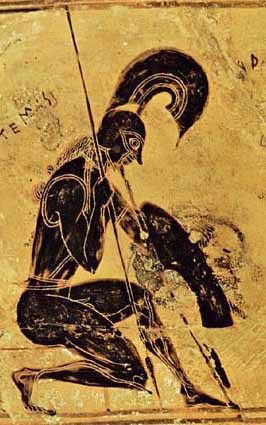

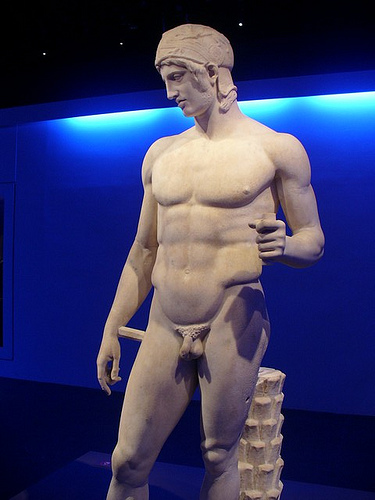

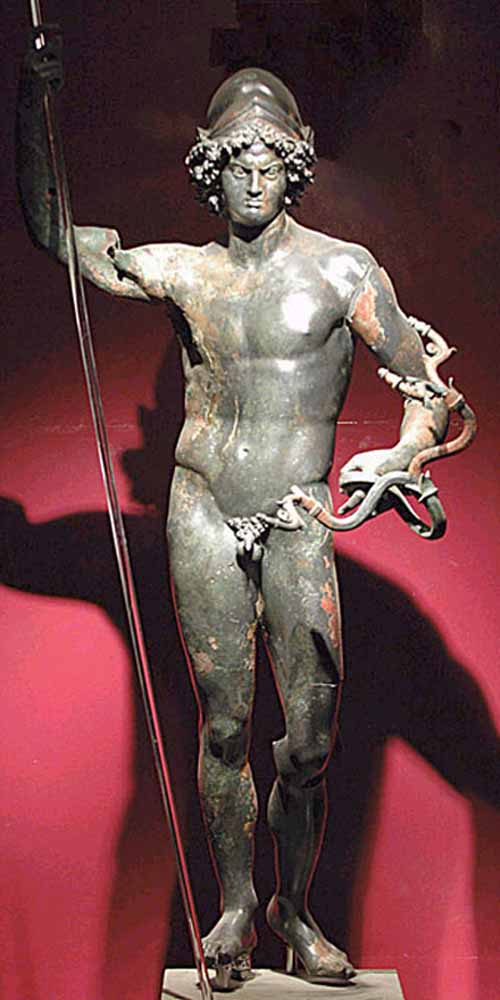

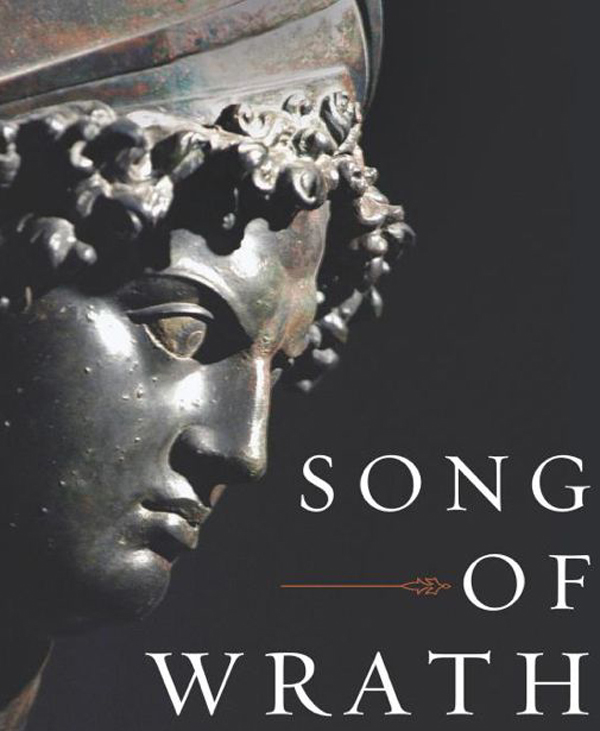
Again, the Warrior God appears nude before his followers.
It makes sense to think that He wants his followers to appear nude before Him.
Nudity then is Natural to both Gods and Men.
Indeed, in the Republic, 2.372, Plato says that in the ideal state, Men will work mostly "gymnoi," that is, nude or unclad:
"First of all, then, let us consider what will be the manner of life of men thus provided. Will they not make bread and wine and garments and shoes? And they will build themselves houses and carry on their work in summer for the most part unclad and unshod and in winter clothed and shod sufficiently? And for their nourishment they will provide meal from their barley and flour from their wheat, and kneading and cooking these they will serve noble cakes and loaves on some arrangement of reeds or clean leaves, and, reclined on rustic beds strewn with bryony and myrtle, they will feast with their children, drinking of their wine thereto, garlanded and singing hymns to the Gods in pleasant fellowship, not begetting offspring beyond their means lest they fall into poverty or war?"
Here Glaucon broke in: "No relishes apparently," he said, "for the men you describe as feasting." "True" said I; "I forgot that they will also have relishes -- salt, of course, and olives and cheese and onions and greens, the sort of things they boil in the country, they will boil up together. But for dessert we will serve them figs and chickpeas and beans, and they will toast myrtle-berries and acorns before the fire, washing them down with moderate potations and so, living in peace and health, they will probably die in old age and hand on a like life to their offspring."
The life described is moderate, simple, full of good fellowship --
And devoid of gold.
Interestingly, on the same day in which the article about Dr Levin appeared in the Times, and Paul Krugman's column about the roboticization of medicine, there was a financial advice column, also in the Times, which attempted to compare going to Costco, a big warehouse store, to buy staples -- to ordering such staples online from amazon.com.
What the financial advice columnist didn't seem to understand is that the two experiences are fundamentally different:
Going to Costco involves going out into the world and interacting with other human beings.
Ordering from amazon is totally solipsistic -- there's no human interaction.
And yet, study after study has shown that what makes people happy isn't things -- objects -- possessions -- but shared experiences with other human beings.
Plutarch, in his descriptions of Sparta, always emphasizes the communal aspect of life there, and how it led to happiness:
there was no longer greed or want among them, but instead equal enjoyment of plenty, and the sense of ease which comes from simple living. Except when they went on campaign, all their time was taken up by choral dances, festivals, feasts, hunting expeditions, physical exercise and conversation.~Plutarch, Life of Lycurgus
And to what did they owe this happiness?
One of the noble and blessed privileges which [the Spartan law-giver] Lycurgus appears to have secured for his fellow citizens was abundance of leisure. In fact it was not permitted them to take up any menial trade at all; and there was no need whatever of making money, which involves a toilsome accumulation, nor of busy activity, because of his having made wealth wholly unenvied and unhonoured.~Plutarch, Spartan Institutions
They were happy because wealth was "wholly unenvied and unhonoured."
Which led in turn to a "sense of ease which comes from simple living."
And Sparta was thus, for many years, an ideal for the rest of the Greeks.
Which is why Sokrates says that the unclad Men of his ideal Republic will come together for simple communal meals in which they'll be "garlanded and singing hymns to the Gods in pleasant fellowship."
"Nobody wants to go backwards, moneywise, in their career," he said. "Would you?"
How much fellowship do you think the good doctor -- the doctor who says "I had to train myself not to get too interested in [my patients'] problems" -- how much pleasant fellowship do you think the doctor has in his life?
Towards the end of his discussion of economism, theologian John B Cobb, Jr speaks plainly of "the evil of worshipping economic growth instead of God"; and adds, "Jesus was very clear that we cannot serve both wealth and God."
Warrior Brian Hulme doesn't do that.
Warrior Brian follows the Way of the Warrior -- and that of the Prophet.
He worships and prays naked to the Warrior God.
And he tithes to his Warrior Alliance.
To most of you, no doubt, that makes him a marginal and disposable person.
But he's not.
He's following the dictates and yearnings of his True and Manly Heart.
And that's what you must do too.
Otherwise, you'll spend your entire life fearing gold;
and never having lived.
Bill Weintraub
March 8, 2011
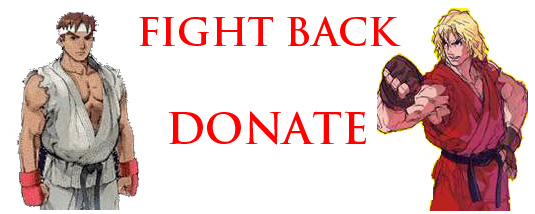
© All material Copyright 2011 by Bill Weintraub. All rights reserved.
Related articles:
The Warrior Altruism of the Warrior God

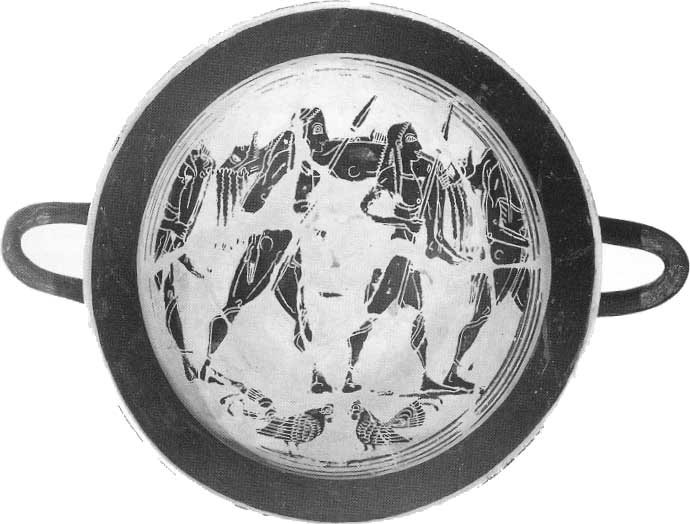


Reply from:
Re: Praying to the Warrior God
3-12-2011
Hi Warrior Bill,
Thanks for this latest posting as usual you took a little E mail, and a letter and worked them with your reply into a really good posting -- now some things caught my eye and I had to comment so here goes:
1) You say "Warrior Man Brian has been praying, naked, to the Warrior God. Which you should all be doing." Well I suppose that it is up to you whether you are naked or not but the way I see it is He made Adam naked -- and leave the clothes off and I leave the false self off. There was a time on a train, when I was dressed in a suit (I wanted to look my best for a picture to be registered at an employment agency) this guy came up to me and said "I think you must be a lawyer" so it goes to show the saying "the clothes make the man" is true so to be only Brian before my Warrior God I must do so as He made me, naked.
2) "Comradeship and Warriorhood, then banish the fear of money." In this society we need those common exchange tokens, money, but it is a matter of what you VALUE that is important and important in life, YOUR life that counts.
3) Yes, Bill, God IS naked, and to join Him is right so I do whenever I can first one in the morning, last one just before getting into bed and it feels better for being naked than any time in between when I am dressed.
4) It is an honour to be considered as one who "follows the Way of the Warrior-- and that of the Prophet" -- Thank you.
5) Maybe many will think that me being naked before the Warrior God makes me a marginal and disposable person but I care only for the opinions of my fellow Warriors and Men, anyone else can shove such thoughts where an analist would shove his dick.
6) On 11th Feb 2008 I got an E mail from you subject : "Re: What do you think? " in which you said "Basically, that you need to listen to yourself. To your heart. To your Manly heart." Well, you need your heart to wake up and tell you the truth then listen to your True and Manly Heart like I have since Feb 2008 but the Warrior God will help, see Ezekiel 11:19 also 36:26:
"I will give you a new heart and put a new spirit in you; I will remove from you your heart of stone and give you a heart of flesh."
With Warrior Love
Brian


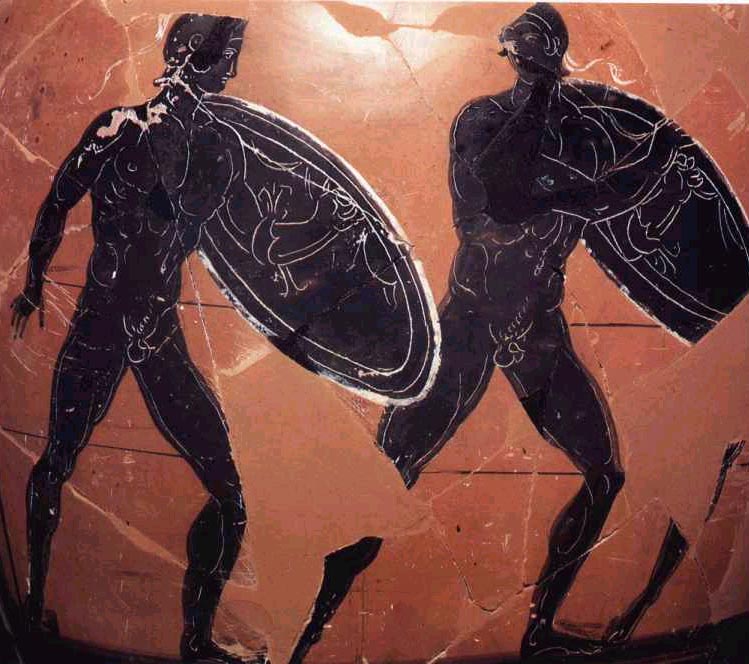

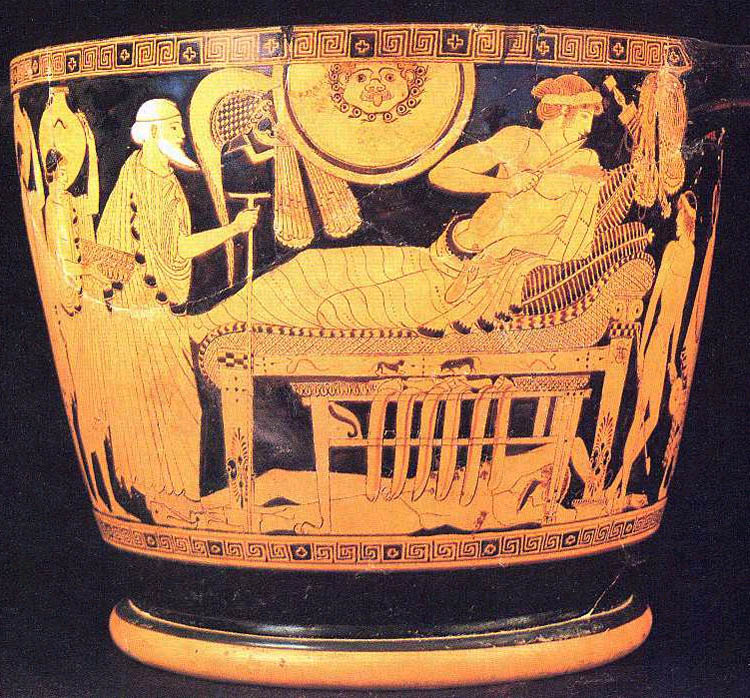








and
who reject anal penetration, promiscuity, and effeminacy
among men who have sex with men




This aspect of our work is the one that's most disturbing and indeed frightening to our opponents:
That we combine the Love of Man with the Love of Fighting Spirit.
Which is Warrior Spirit.
The Warrior God is the Guardian of that Spirit.
You may call him Jesus Christ as Robert Loring does.
You may call him Ares as did the Greeks.
What's important is that you understand and acknowledge
the vital role He plays in Your Life.


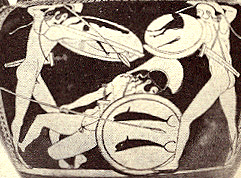



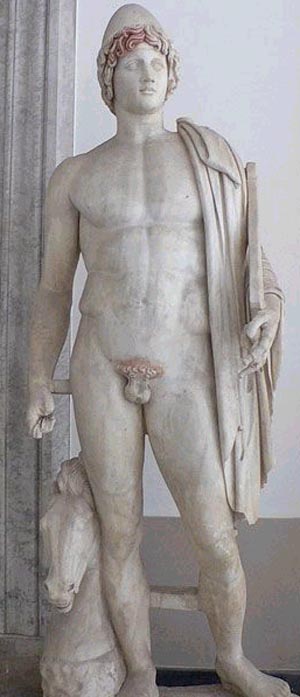







and
who reject anal penetration, promiscuity, and effeminacy
among men who have sex with men


This aspect of our work is the one that's most disturbing and indeed frightening to our opponents:
That we combine the Love of Man with the Love of Fighting Spirit.
Which is Warrior Spirit.
The Warrior God is the Guardian of that Spirit.
You may call him Jesus Christ as Robert Loring does.
You may call him Ares as did the Greeks.
What's important is that you understand and acknowledge
the vital role He plays in Your Life.





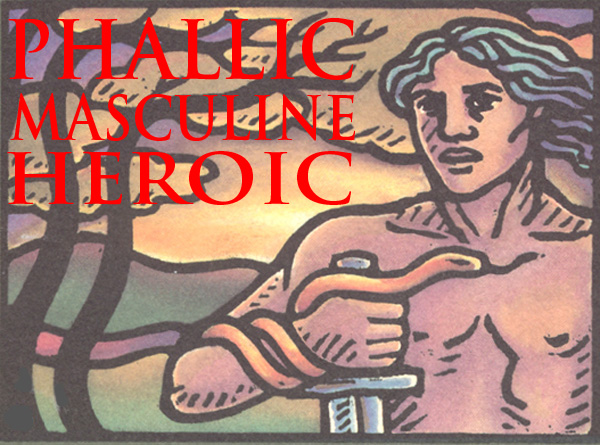



AND


Warriors Speak is presented by The Man2Man Alliance, an organization of men into Frot
To learn more about Frot, ck out What's Hot About Frot
Or visit our FAQs page.

| Warriors Speak | Ask Sensei Patrick | Warrior Fiction | Frot: The Next Sexual Revolution | Sex Between Men: An Activity, Not A Condition |
| Heroes Site Guide | Toward a New Concept of M2M | What Sex Is |In Search of an Heroic Friend | Masculinity and Spirit |
| Jocks and Cocks | Gilgamesh | The Greeks | Hoplites! | The Warrior Bond | Nude Combat | Phallic, Masculine, Heroic | Reading |
| Heroic Homosex Home | Cockrub Warriors Home | Heroes Home | Story of Bill and Brett Home | Frot Club Home |
| Definitions | FAQs | Join Us | Contact Us | Tell Your Story |

© All material on this site Copyright 2001 - 2011 by Bill Weintraub. All rights reserved.



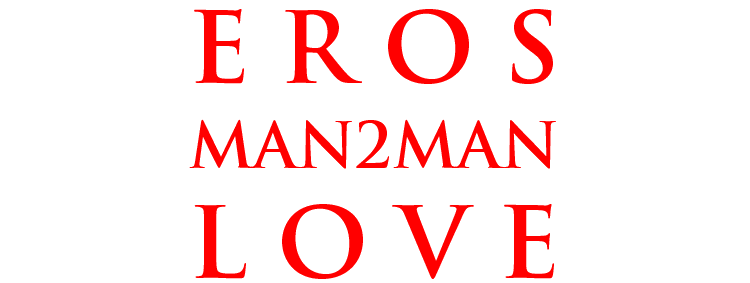

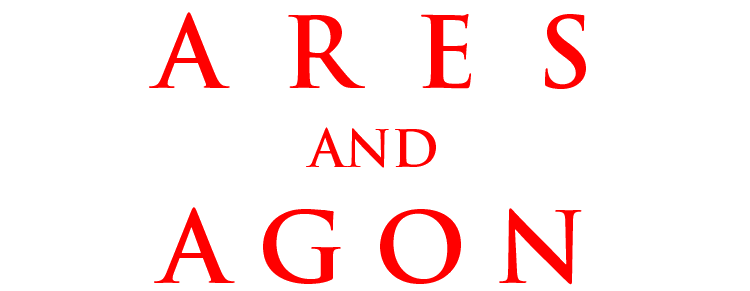


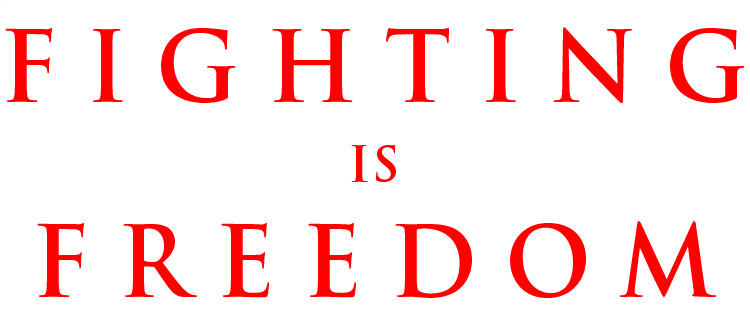

This aspect of our work is the one that's most disturbing and indeed frightening to our opponents:
That we combine the Love of Man with the Love of Fighting Spirit.
Which is Warrior Spirit.
The Warrior God is the Guardian of that Spirit.
You may call him Jesus Christ as Robert Loring does.
You may call him Ares as did the Greeks.
What's important is that you understand and acknowledge
the vital role He plays in Your Life.










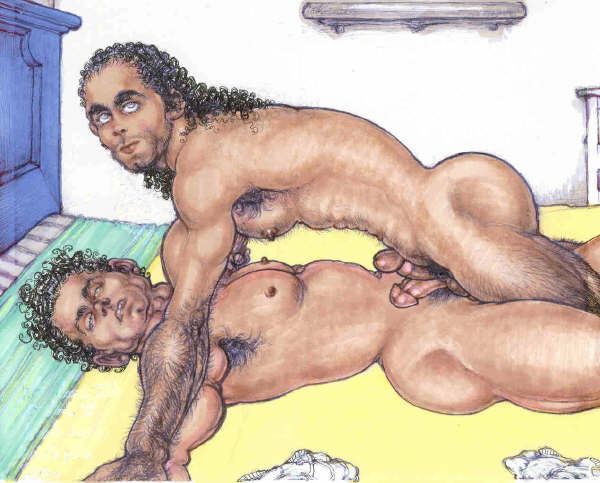

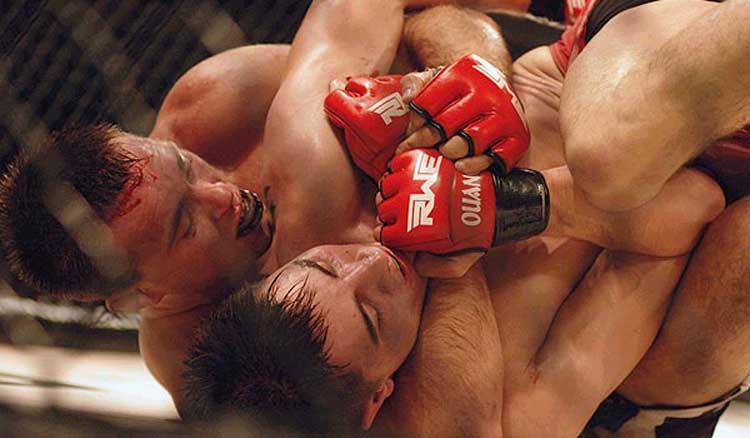

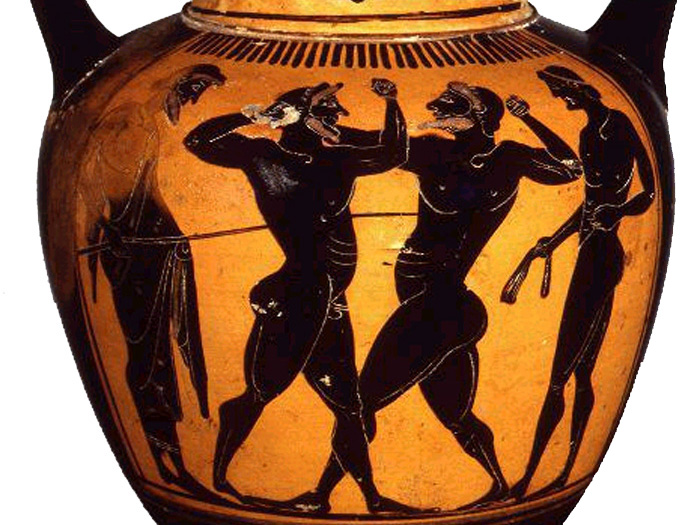

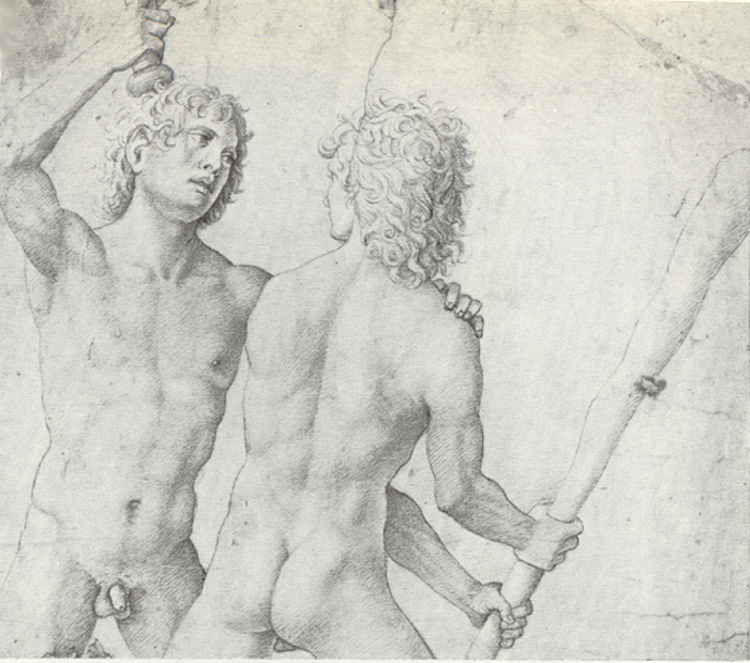

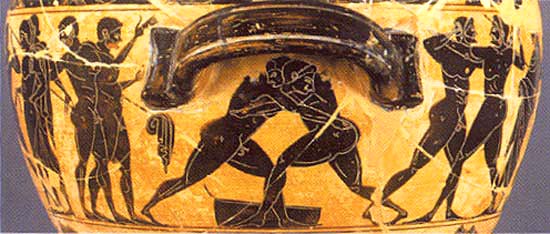
The masculinity of men flows from their group. Their natural masculinity combines and gets manifold when masculine men unite. The camaraderie, mutual understanding, support, learning the ways of the world as a male, fighting together, dealing with roughs and toughs of life together -- they all help to develop the natural masculinity that exists within them.
They had many words for struggle and combat and fighting and strife -- maches, eris, hamilla, agon, polemos, ares -- and athlos, the word from which we derive our word "athlete."
In Greece, athletai could be rivals on the playing field or the battlefield.

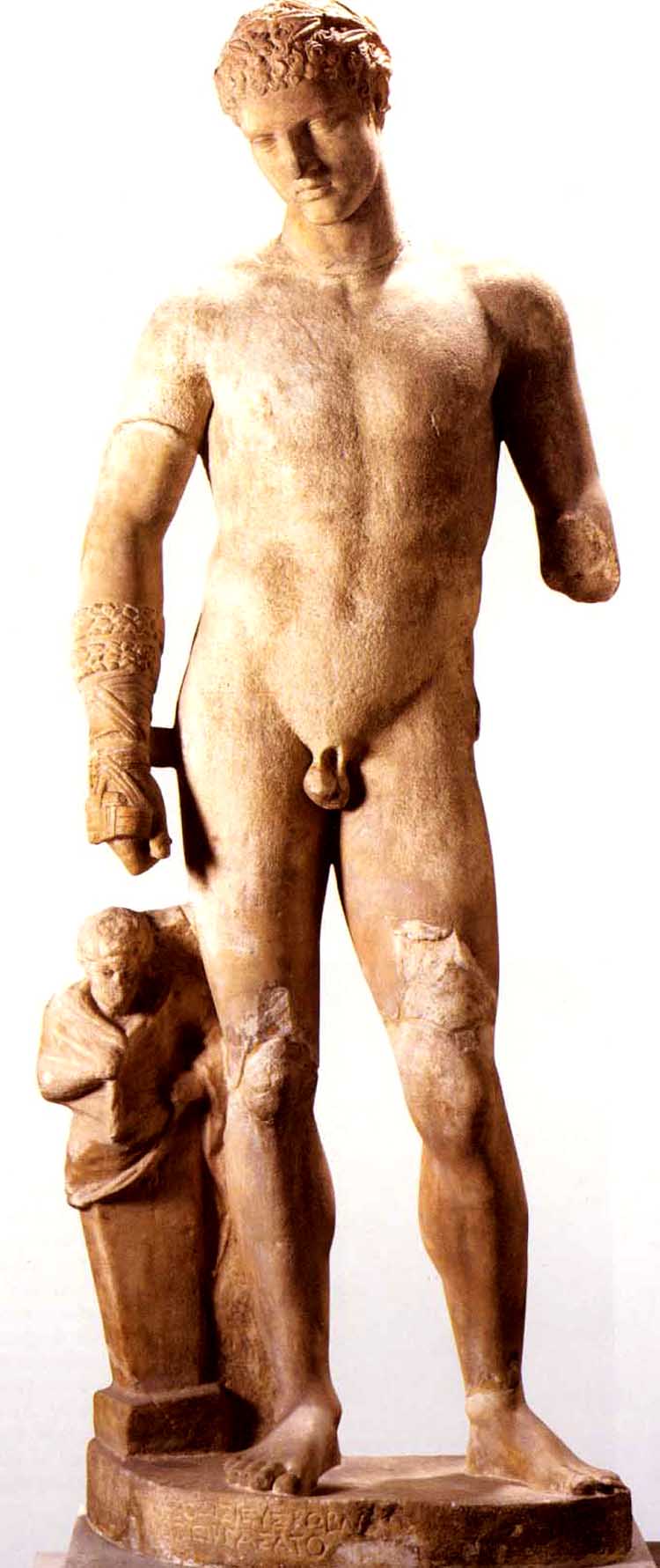

Warrior Kosmos:
Manly Aggression, Manly Virtue:


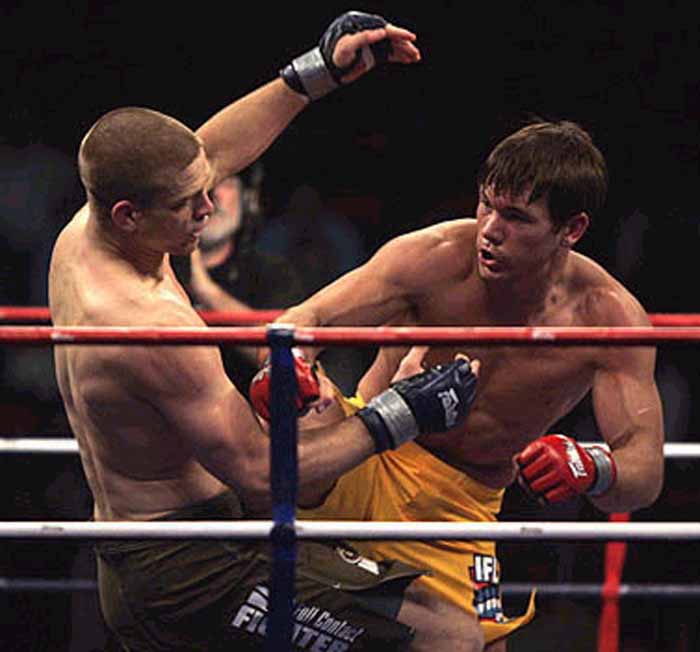


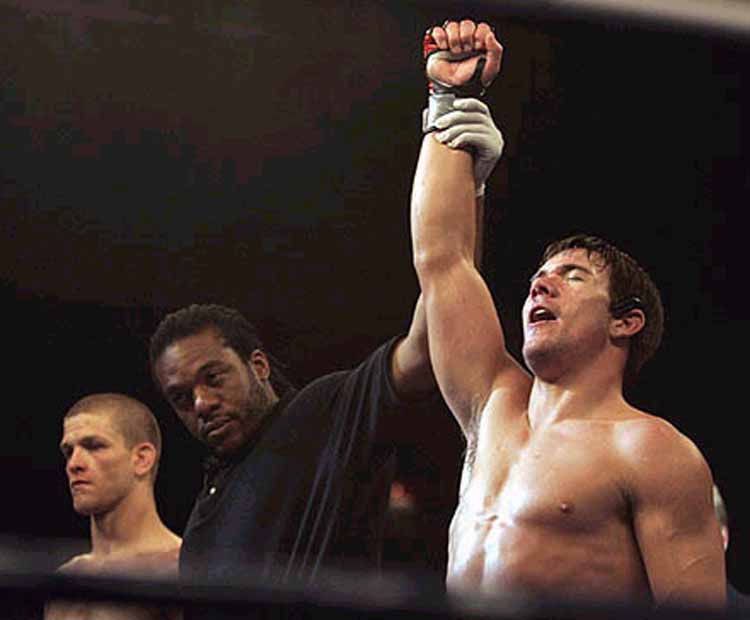








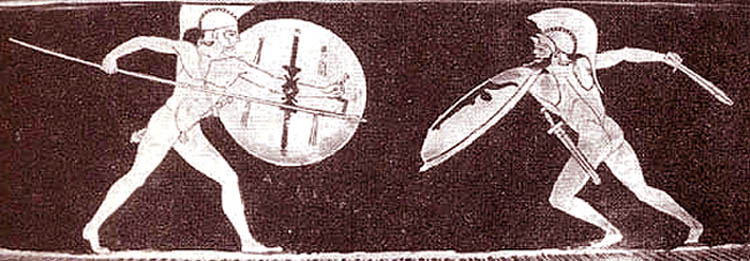

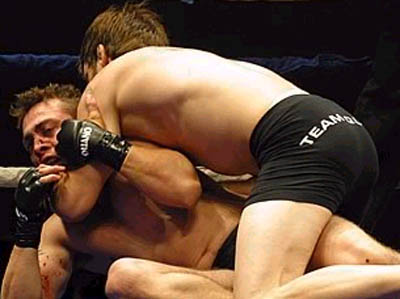


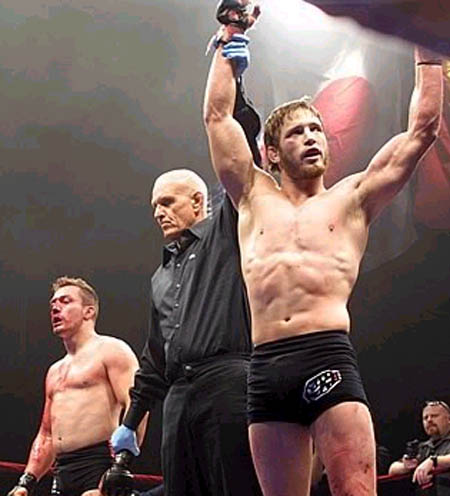



Which would you rather be?
Some dork in a rubber mask?
Or a Warrior?

You're gonna die anyway.
And your money will die with you.
